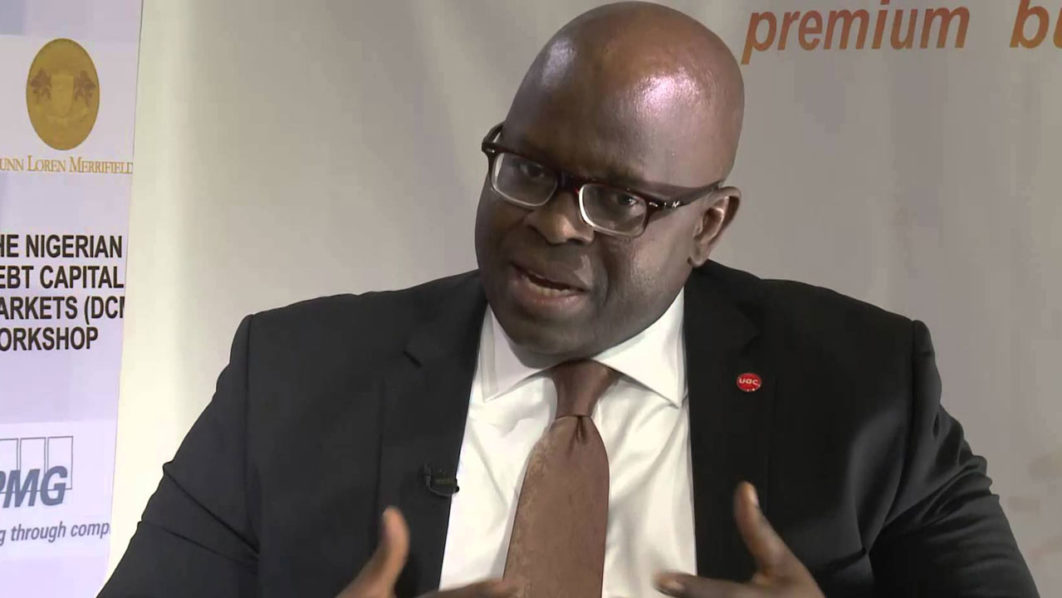The Founder and Chief Executive Officer of Eximia Realty Co Ltd, Mr. Hakeem Ogunniran has identified liquidity, titling and the adoption of technology as three key areas that can transform Nigeria’s real estate sector. He said this as a guest on a WebTV Economy and Politics programme.
According to Oguniran, there is need for innovation, a review of the national housing policy, while embracing newer technology, as real estate investors unlock opportunities and begin to address the challenge of a domestic housing deficit.
Discussing the $3.4billion funds approved by the International Monetary Fund (IMF) as an intervention support for the problems associated with COVID-19, Oguniran said the approved fund was a welcome gesture as the country needed all the outside support it could get. He stated that, COVID-19 has been both instructive and destructive, it has exposed the weak underbelly of the economy.
According to Oguniran, Nigeria is now in a fragile state as Crude Oil prices have fallen to their lowest levels in the past two decades. He observed that Nigeria equally failed to invest wisely in infrastructure and currently suffers from a massive infrastructure gap necessitating the Central Bank of Nigeria (CBN) to create a purpose-specific vehicle, INFRACO Plc, to address the problem with a proposed N1.5trillion.
Reviewing the real estate sector, he noted that the real estate market has had trouble since 2016 when it experienced negative growth of -6.8%, negative growth of -4.7% in 2017, negative growth of -4.2% in 2018 , and a slight recovery of -2.3% in 2019.
The property expert observed that in 2020 the real estate market started on a very optimistic note but the COVID-19 pandemic has obviously upturned previous expectations.
Speaking on the challenges facing the sector amidst COVID-19, he highlighted unfavourable macroeconomic factors such as crash of returns on fixed income assets (treasury bills and bonds), and a fall in returns on other alternative asset classes including foreign exchange. He was of the view that the pandemic was unique in the sense that people have stayed more focused on survival, staying afloat, feeding, basic needs rather than asset purchases such as houses.
Speaking on the opportunities amidst the pandemic, the Oguniran believed Nigeria needed strong macroeconomic fundamentals, in the sense that when the economy is strong real estate will thrive.
He explained that healthcare tourism was a strong segment of the real estate market, noting that before the coronavirus pandemic part of the challenge of the sector was the sourcing of patient long-term funding. He said, there was a need to create a long-term funding platform in the sector noting that the Finance Act 2020 has through provisions relating to real estate investment trusts helped in promoting longer-term funding options.
Oguniran believed it was time to look at alternative asset classes beyond the traditional commercial retail residential assets that involve in logistic which will call for solutions that come from deliberate strategic approach.
The real estate expert spoke on mortgages market in Nigeria and issues of mass housing, according to him, mortgage penetration is very low in Nigeria currently the country has only 20,000 mortgages in Nigeria, the ratio of mortgage finance to GDP in Nigeria is 0.6% , Ghana 2%, South Africa 30% , the United Kingdom (UK) 60%, and the United State of America (U.S) 70%. He pointed out that Nigeria is still far below a desirable ratio, and the first approach to solving the problem is to review the structure of the economy and see how it can be aligned to generating patient finance to fund the mortgage sector.
Looking at the housing deficit in the country he said, the Home Ownership Rate in the country was less than 25%, in Romania 96.4%, and in Singapore mass housing is 90.8%. he believed there is a need to commoditised housing, to industrialize the process of housing delivery.





